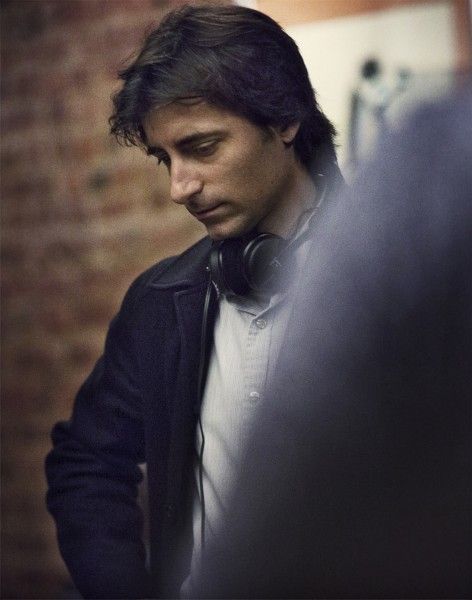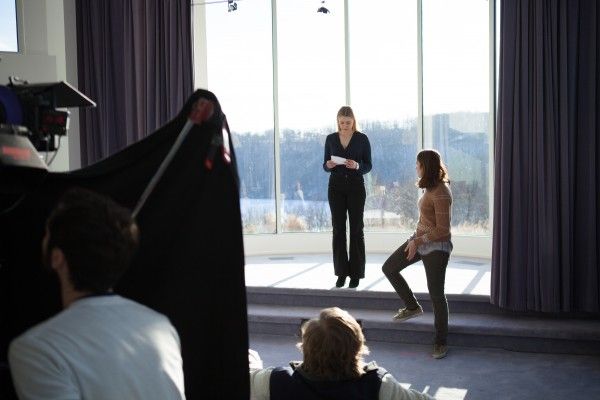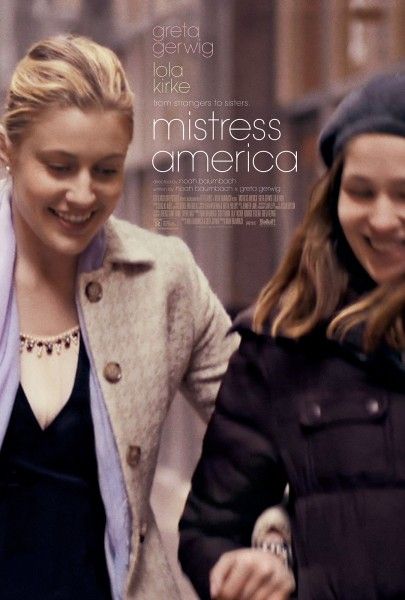The Squid and the Whale filmmaker Noah Baumbach’s doubled down in 2015 with two delightful, different, yet not dissimilar comedies, While We're Young and Mistress America. Although both films touch on intellectual theft, a major difference between the two isn't just the style of comedy, but also how they came into the world. While We're Young was constantly being recast and took a few years to get off the ground. Mistress America, like Baumbach's fantastic Frances Ha, was completely scripted, shot, and edited without a press release before fans knew of its existence.
America reunites Baumbach with Frances Ha co-scripter and star Greta Gerwig. The film follows Tracy (Lola Kirke), a college freshman who finds friendship and writing inspiration in her older stepsister-to-be, Brooke (Gerwig). Despite her upbeat personality, Brooke's life hasn't exactly turned out how she planned, so the duo head off to a beautiful Connecticut house to confront the woman she blames for stealing all her ideas (Heather Lind), and the woman's husband (Michael Chernus)—who might still have a thing for Brooke. It is in this house setting where Baumbach plays with fluidity of comedy, as characters venture off into different rooms to divulge secrets that come to play later.
Recently, I got the chance to sit down with Baumbach to discuss his and Gerwig's script-collaborating process, how their two films were kept a "secret," where he falls on taking inspiration from others for writing purposes, and more.
Collider: First of all, I wanted to ask, because I just moved from to New York from LA, and for both this film and Frances Ha, I always read about it being a secret shoot, a secret movie by the LA press. Are you actually setting out to make a “secret movie” or are you just circumventing the larger LA process?
NOAH BAUMBACH: It wasn’t designed. Neither of them were designed as secrets but I think probably what led to that is that the script was never released anywhere. Agents never got it, the actors only got the pieces they were in, and so I think in that was it kind of just had no footprint before it was made, and as a result, people didn’t really know about them until they were done. Which is kind of a happy result, because it’s always nice to just be able to go do your work and not have to worry about expectation or announcements or anything like that, but they weren’t—by design—that way.
I actually just re-watched While We’re Young last night, and Ben Stiller’s character is critiqued a lot for not being able to collaborate—as a filmmaker, what speaks to you with Greta [Gerwig] as far as being able to collaborate with her?
BAUMBACH: I mean we really share a lot of the same sensibilities, we like a lot of the same movies. In writing, behavioral building blocks are interesting to both of us, so when we start talking about doing something together, there’s a lot of common ground, even though we’re bringing in our own perspectives and our own lives to it, but it feels very easy. Both these scripts felt like they’re very much of one voice—even though we’re working on our own scenes separately. We bring them together and they would go together without having to do much to them. But filmmaking is so collaborate even beyond that, it’s such an integral part of how movies get done, so I’m very used to collaborating with people, at least at some point of the process. It’s less lonely, too, to work with somebody.
You said that you would each work on different scenes. Do you tackled separate characters, or was it always spitballing?
BAUMBACH: Yeah we don’t take particular, oh say “she takes this, I take that”, it’s more like wherever we are in the development of it, we’re like “why don’t you try this, and I’ll try that.” We write all the characters, there isn’t anything that I can think of that would be more particular to her or me.
This film, maybe the most of yours since Kicking And Screaming has a lot of non-sequiturs, and I’m wondering how do you inject those organically into a script?
BAUMBACH: I mean, it had to be fluid—like everyone is waiting their turn to speak— especially when these characters are converging from different rooms in the house. The movie was flexible in that way, and I suppose to what that would include, there’s dialogues and characters that you could kind of introduce that would somehow fit in this world that wouldn’t necessarily fit in another movie. It would not fit in While We’re Young, for instance.
And actually the house section was something I want to talk about, I know you’re a film guy, film history, the house itself felt to me like a very funny Eric Rohmer moral tale, and also The Exterminating Angel—it didn’t really feel like they could leave this house, even though they obviously could. Were you setting out to play with those types of Euro films in a more comedic way?
BAUMBACH: I remember somebody making that joke about Kicking And Screaming, it was like The Exterminating Angel at college that they could leave. I wasn’t necessarily consciously thinking about that stuff, but they’re all movies and things I like, so they all find their way in. The sort of choreography of those scenes was sort of the challenge, shooting that many people, and finding a way to do it, which is not unlike Rohmer, but even sort of like George Cukor or Howard Hawks. I felt like I wanted to stay back and not cut if I didn’t have to, so I choreographed it as such so that people could come in and out and we would sort of be with the person we’re supposed to be with at the right time, and only cut when it was necessary, rather than doing a lot of coverage and kind of creating it all later, and using as much real rhythm as possible, because I think that’s something that is pleasurable about those movies, so that I was aware of, and also that’s what took time because you have to really get this stuff down to timing so that each joke can land.
Just how things worked as far as distribution in the U.S. went, both While We’re Young and Mistress America were released this year, and they both tackle—from different angles—this question of what can you take from other people and make it your own story. What is your own personal take as a writer?
BAUMBACH: In both [films], it’s a personal hurt. I mean, the arguments are ethical or moral or artistic or philosophical, but it’s really about being hurt by somebody, and finding a way to express that, and also about what we project onto each other, and what you make somebody into… In both cases I suppose, with Brooke’s (Gerwig in Mistress America) and Josh’s (Ben Stiller) character in While We’re Young, are both sort of flattered with this seeming idolatry (from their younger counterparts who document them), but in both cases they’re also the ones that sort of idolize the other one, too. It’s not a surface understanding, there’s an undercurrent of idolatry.
I think with Brooke and Tracy (Kirke in Mistress America) what we wanted to highlight it was those sort of relationships that come in our lives that are hugely impactful at the time, but don’t actually take up that much time in our life—like Tracy says at the end of the movie, “It’s not even my first semester in college.” And it’s that kind of college time, where a weak relationship feels super significant, so I think with this movie I found that touching, this moment in time that we’re documenting, which in the course of the movie is a huge thing, is actually a blip in both these women’s lives, but they’re both changed by it.
What are you currently working on now?
BAUMBACH: I’m writing something now, which I think I’ll shoot next year, but it’s still a process, so I don’t even know what it’ll end up being, yet.
Will that one go through the larger system of talent agents and all that, or do you prefer the freedom in which you’ve made Ha and America?
BAUMBACH: In some ways, the more I do them, they really start to blend… [pause] I don’t know yet, is the answer. Did you say you just moved from LA to New York?
Yes. 4 months ago.
BAUMBACH: You made the right choice.
Mistress America opens in select cities this Friday. Here's the official synopsis:
In MISTRESS AMERICA, Tracy (Lola Kirke) is a lonely college freshman in New York, having neither the exciting university experience nor the glamorous metropolitan lifestyle she envisioned. But when she is taken in by her soon-to-be stepsister, Brooke (Greta Gerwig) – a resident of Times Square and adventurous gal about town – she is rescued from her disappointment and seduced by Brooke’s alluringly mad schemes.






